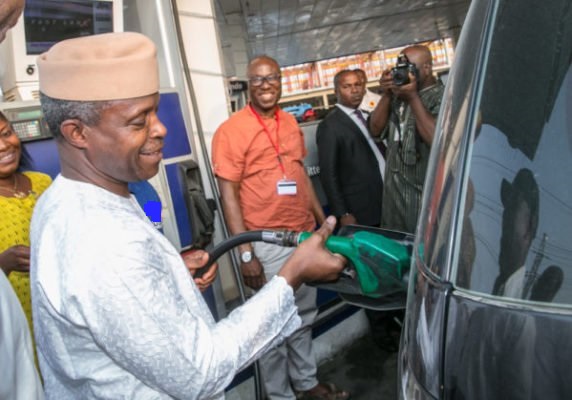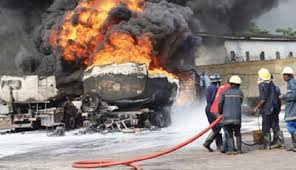Leading energy analyst, Engineer Abiodun Adewale has argued that so far the nation’s refineries are not yet delivering at full capacity so as to saturate the country with local products, importation of products when crude price is above a certain threshold will continue to mean high landing cost which defines either continued fuel scarcity or higher pump price.
He told our Energy Correspondent in Lagos on Thursday that “What we are experiencing even before the onset of 2017 yuletide is the fallout of price differentials from lower crude price and now higher crude price”.
“No matter what the government is brandishing as reasons for the intractable scarcity, the fact remains that high crude price connotes higher landing costs of wet products of refined petroleum.
Recall that even the Minister of Finance had given a veiled explanation of this scenario but many Nigerians did not get it very clear from her comments.
“She said the rising crude price is a double-edged sword for the country as lower crude price is a loss to the federal government and stable fuel price for Nigerians while high crude price is more income for Nigeria and higher fuel price at the same time due to our inability to locally refine our crude.
Continuing, Adewale noted that “Due to the fact that the administration had since recently come under serious attacks on poor productivity, it cannot afford to embarrass itself the more by jerking up the pump price in line with the higher landing cost of products at the shores”.
“Recall that it’s just less than one year to election and the government or party will be interested in returning to power next year. So it cannot afford to annoy Nigerians with another fuel price hike even though it is the best alternative for now.
“However, left for me, I will advice the government to give major importers some levels of tax holidays that will cover for the marginal increase in landing cost so that every independent importer who had sourced its forex from any source can sell at N145, the official pump price.
Checks in several parts of the country showed that fuel still sells higher than N145 at petrol stations and the staff strengthen of the Department of Petroleum Resources (DPR), cannot catch all stations dispensing above N145.
In Lagos, several stations selling usually sell very early in the morning at about N170 or more and very late in the evening when it is assumed that DPR officials have closed for the day. This act had been going on since late last year.
Since this week, scarcity of petrol resurfaced strongly even in Abuja and Lagos as long queues are seen at stations that managed to sell at N145.
Otherwise, there seemed to be no end in sight with respect to the queues for petrol in Abuja and neighbouring states of Kaduna, Niger and Nasarawa, as the situation persisted since this week.
Queues by thousands of motorists and other users of Premium Motor Spirit, popularly known as petrol, have been a regular sight in the Federal Capital Territory and neighbouring states since the end of the fourth quarter of last year.
Many independent filling stations were shut on Wednesday for lack of fuel to dispense, while the few major oil marketers and mega filling stations belonging to the Nigerian National Petroleum Corporation that dispensed the commodity had to contend with long queues of desperate motorists.
Despite the many complaints by petrol users and several reports by the media, the situation has failed to improve, as motorists who wish to purchase PMS from filling stations now factor in the hours they will spend in queues as they plan their daily schedule.
Nigerians across the nation now feel that the current administration may have run out of ideas on how to handle the scarcity.









